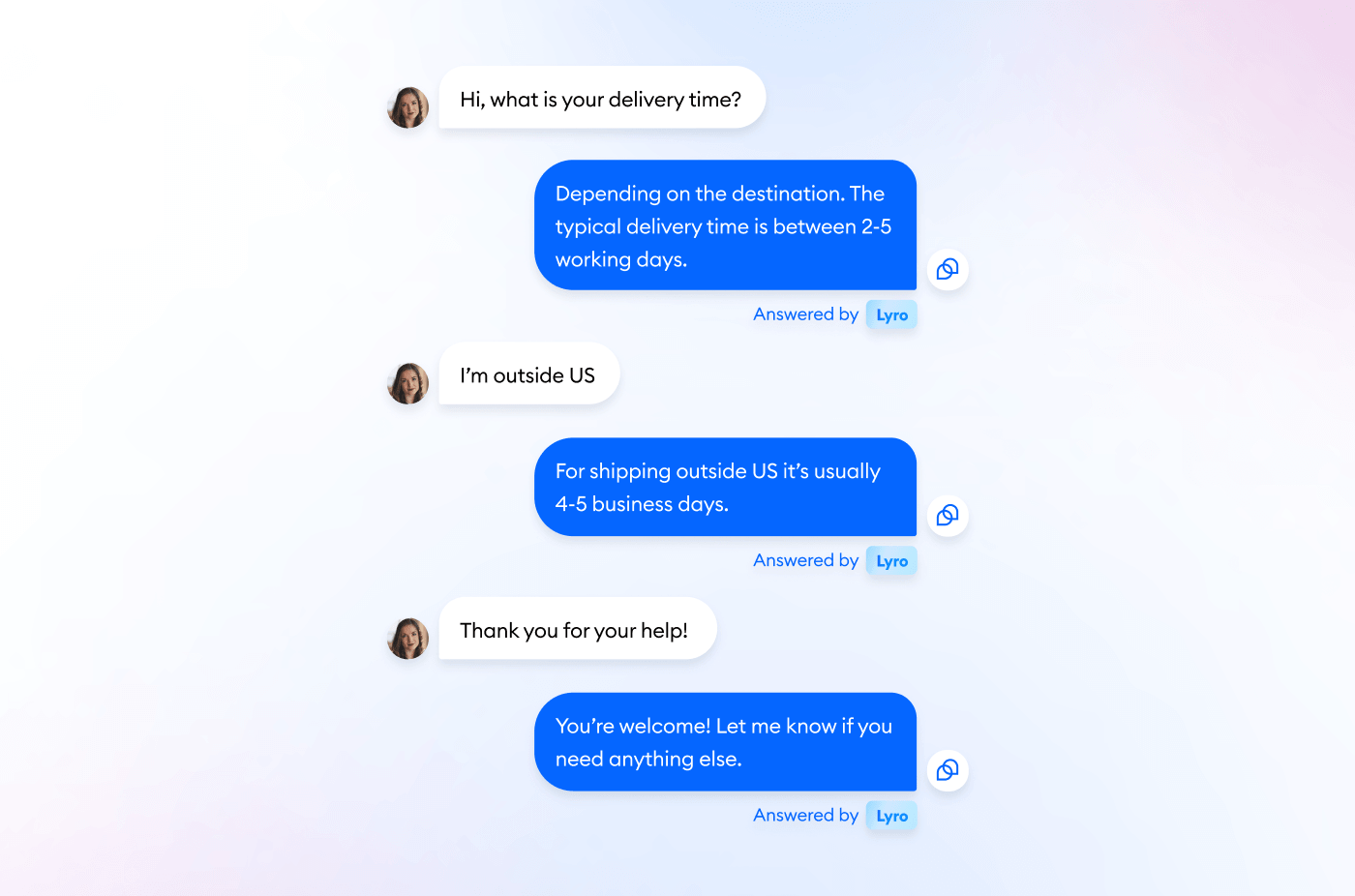Step into the world of AI for small business marketing. Our guide breaks down practical, easy-to-implement strategies for leveraging AI to elevate your marketing game!
Welcome to the exciting world of AI in marketing! If you're running a small business and think AI is just a fancy buzzword or a luxury for the big players, it's time to think again. Artificial Intelligence is rapidly becoming a key player in the marketing toolkit, and it's not just for the corporate giants. In this guide, we'll explore how AI can transform your marketing strategies, making them more efficient, personalized, and impactful.
Demystifying AI for Small Businesses
AI: Not Just a Silicon Valley Fairytale
Often, AI is perceived as complex and inaccessible, shrouded in tech jargon, and reserved for companies with deep pockets. Let's bust that myth! In reality, AI tools are more accessible and user-friendly than ever before. They're designed to cater to businesses of all sizes, including yours.
The AI Advantage in Marketing
Think of AI as your smart marketing assistant, one that works tirelessly to analyze data, predict trends, and personalize customer interactions. For small businesses, this means being able to compete in markets that were previously out of reach. AI levels the playing field, giving you insights and capabilities that allow you to punch above your weight.
Breaking Down AI Applications
AI in marketing isn't just one thing; it's a spectrum of tools and capabilities. From chatbots that handle customer inquiries to predictive analytics that inform your next big campaign, AI can be your secret weapon in understanding and engaging with your audience more effectively. And the best part? You don’t need a PhD in Computer Science to use it. Today's AI tools are designed for marketers, not just tech experts.
The AI Marketing Toolkit: Essentials for Small Businesses
1. Chatbots: Your Digital Customer Service Agents
Gone are the days when chatbots were clunky, robotic, and impersonal. Today's AI-powered chatbots are smart, witty, and surprisingly human-like. They're your always-on customer service agents, ready to engage customers, answer queries, and even gather valuable feedback. For small businesses, this means no customer query goes unanswered, regardless of your team's size or bandwidth.

2. AI-Powered Analytics: Insights at Your Fingertips
Data is the lifeblood of effective marketing, and AI-powered analytics tools are like having a super-smart data scientist on your team. They sift through mountains of data to unearth insights about customer behaviors, campaign performance, and market trends. This means you can make informed, data-driven decisions without spending hours on spreadsheets.
3. AI-Assisted Content Creation: Unleash Your Creativity
Struggling to create compelling content? AI to the rescue! AI-assisted content tools can help generate ideas, suggest improvements, and even write initial drafts. They're not here to replace your creative spark but to fan its flames. By handling the heavy lifting, AI lets you focus on adding that personal touch that resonates with your audience.
Adopting an AI Mindset: The First Step
Embrace AI as Your Ally, Not Your Rival
The first step in integrating AI into your marketing is a mindset shift. AI is not here to take over your job; it's here to make it easier and more effective. Think of AI as a tool that enhances your capabilities, allowing you to do more with less.
Identify Your Marketing Needs
Every business has unique challenges and goals. Do you need better customer insights, more engaging content, or streamlined customer service? Identifying where you need the most support will help you choose the right AI tools.
Start Small and Scale Smartly
You don't need to overhaul your entire marketing strategy overnight. Start with one tool that addresses a specific need. Get comfortable with it, measure its impact, and then consider expanding your AI toolkit. This gradual approach reduces overwhelm and lets you experience the benefits of AI at a manageable pace.
Practical Steps to Implement AI in Your Marketing
Step 1: Pinpoint Your Marketing Pain Points Start by identifying the specific challenges in your marketing process. Is it understanding customer behavior, generating consistent content, or managing customer inquiries? By pinpointing these areas, you can focus on finding AI solutions that address these specific issues.
Step 2: Selecting the Right AI Tools Once you know your needs, it's time to choose your AI tools. Look for solutions that are renowned for their ease of use and strong customer support. Don't just go for the most popular option; choose the tool that aligns with your specific marketing objectives and challenges.
Step 3: Integrating AI into Your Workflow Begin by integrating the AI tool into one aspect of your marketing strategy. This could be using chatbots for customer service or analytics tools for campaign insights. Monitor the tool’s performance and its impact on your marketing outcomes. Adjust and optimize as you go along.

Step 4: Training Your Team Ensure your team is comfortable and proficient with the new AI tools. This might involve some training sessions or workshops. Remember, the more your team understands and embraces these tools, the more effectively they can be used.
Step 5: Measuring and Adapting Track the performance of your AI tools. Are they meeting your expectations? Use metrics relevant to your goals – whether that's increased engagement, time saved, or improved customer satisfaction. Be prepared to adapt your strategy and explore different tools if necessary.
Real-World Success Stories
Case Study 1: Bella Boutique's Personalized Touch Bella Boutique, a quaint fashion store in Asheville, North Carolina, faced the challenge of increasing repeat business. They turned to AI-powered analytics to gain insights into customer preferences and shopping habits. By integrating these tools with their CRM system, Bella Boutique created personalized marketing campaigns, offering customers tailored recommendations based on their previous purchases and browsing behavior. The result? A remarkable 30% increase in repeat customers within six months, and a surge in customer satisfaction as shoppers felt understood and valued.
Case Study 2: Java Jive's Chatbot Revolution Java Jive, a cozy café in downtown Boulder, Colorado, known for its artisanal coffee, wanted to enhance its customer service. They implemented an AI-powered chatbot on their website, designed to handle reservations, answer FAQs, and provide personalized coffee recommendations. This innovation significantly reduced customer response time and freed up staff to focus on creating memorable in-café experiences. The impact was immediate: a 25% increase in online bookings and a noticeable boost in sales, coupled with glowing customer reviews praising the swift and helpful online service.
Case Study 3: Pages & Stories' Creative Leap Pages & Stories, an independent bookstore in Ann Arbor, Michigan, sought to increase foot traffic and online sales. They turned to AI-assisted content creation tools to revitalize their marketing. These tools helped them craft engaging, relevant content for their email campaigns and social media posts, targeting book lovers with personalized book recommendations and event announcements. The result was a vibrant, engaging online presence that mirrored the charm of their physical store, leading to a 40% increase in online engagement and a significant rise in both online and in-store visits.

Challenges and Considerations in AI Adoption
Navigating the Learning Curve Integrating AI into your marketing strategy comes with a learning curve. It's essential to be patient and persistent. Remember, even the most intuitive tools require some getting used to. Don't get discouraged by initial hiccups; these are stepping stones to mastering AI in your marketing.
Data Privacy and Ethical Considerations As you dive into AI, be mindful of data privacy and ethical implications. Ensure that your use of AI tools complies with data protection regulations like GDPR. It's not just about being legally compliant; it's about earning and maintaining your customers' trust.
Choosing the Right Vendors Not all AI tools are created equal. It's crucial to choose vendors that offer robust support and training. Look for vendors with a good track record, positive reviews, and transparent practices. A reliable vendor should be a partner in your AI journey, not just a service provider.
Cost vs. Benefit Analysis While AI can bring significant benefits, it's important to weigh the costs. This doesn’t just mean financial costs but also time and resources. Ensure that the benefits, such as increased efficiency, higher customer engagement, and improved insights, justify the investment.
Staying Informed and Updated AI is a rapidly evolving field. Keeping up-to-date with the latest advancements and tools can give you a competitive edge. Regularly educate yourself and your team about new AI developments and how they can benefit your business.
Adapting to Change Finally, be prepared to adapt. The world of AI and marketing is constantly changing. What works today might not work tomorrow. Stay flexible and ready to pivot your strategies as needed. This adaptability is key to leveraging AI successfully in the dynamic landscape of marketing.
Conclusion: Embracing AI for Marketing Success
AI is not a distant future concept; it's a present-day tool that can significantly elevate your marketing strategies. It offers a chance to enhance customer engagement, streamline processes, and gain valuable insights. The key is to start small, focus on specific needs, and gradually expand your AI capabilities. With the right approach and tools, AI can be a game-changer for your business, helping you compete in today's fast-paced digital marketplace.
Take the Next Step in Your AI Journey
Ready to take your marketing to the next level with AI? Here’s how you can start:
- Explore and Learn: Dive deeper into the world of AI. Read articles, attend webinars, and join forums to expand your understanding.
- Identify Your Goals: Reflect on your business's unique needs and challenges. What aspects of your marketing could benefit most from AI?
- Experiment and Innovate: Choose an AI tool that aligns with your goals and start experimenting. Remember, the best way to learn is by doing.
- Stay Updated: Sign up for our newsletter to get the latest updates, case studies, and practical tips on using AI in marketing.
AI in marketing is not just a trend; it's a transformative tool that’s reshaping how we connect with customers and grow our businesses. Embrace it, experiment with it, and watch your marketing soar to new heights!

